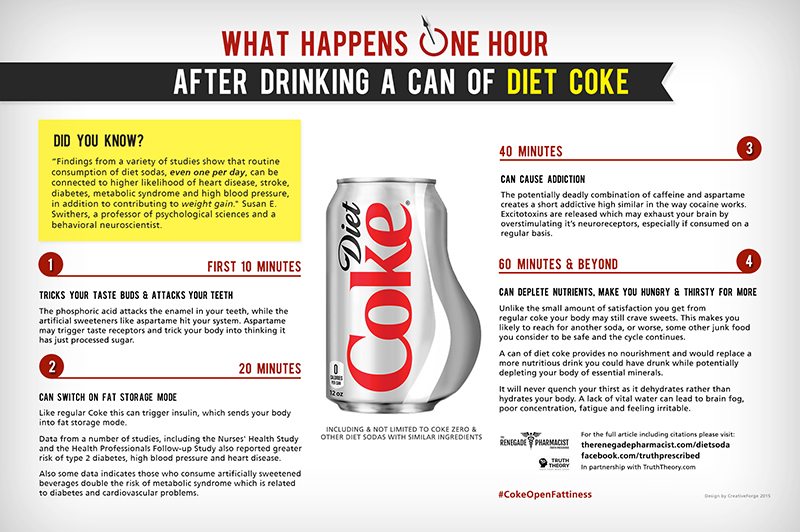Can Diet Soda Dehydrate You? Unraveling The Truth Behind The Bubbles
In recent years, diet soda has become a popular alternative for those looking to cut calories while still enjoying a fizzy beverage. However, a common question arises: can diet soda dehydrate you? This article aims to explore this concern, diving deep into the relationship between diet soda consumption and hydration levels.
The world of diet sodas is filled with various flavors, brands, and sweeteners, making them an appealing choice for many. Yet, understanding their effect on the body, particularly regarding hydration, is crucial for health-conscious individuals. In this comprehensive guide, we will examine the ingredients in diet soda, their potential impact on hydration, and the science behind these fizzy drinks.
As we navigate through the intricate details of diet soda and hydration, we will rely on credible sources and expert opinions to provide an informed perspective. By the end of this article, you will have a clearer understanding of whether diet soda can indeed lead to dehydration.
Table of Contents
- What is Diet Soda?
- Ingredients of Diet Soda
- The Role of Caffeine
- Can Diet Soda Cause Dehydration?
- Studies on Diet Soda and Hydration
- Alternatives to Diet Soda
- Conclusion
- References
What is Diet Soda?
Diet soda is a type of soft drink that is artificially sweetened instead of containing sugar. The primary purpose of diet soda is to provide a low-calorie alternative to regular soda. These beverages are often marketed as healthier choices for individuals looking to reduce their sugar intake.
Popular Brands of Diet Soda
- Coca-Cola Zero Sugar
- Diet Pepsi
- Sprite Zero Sugar
- Fanta Zero
Ingredients of Diet Soda
Diet sodas typically contain a combination of the following ingredients:
- Artificial Sweeteners: Common sweeteners include aspartame, sucralose, and acesulfame potassium.
- Carbonated Water: The primary ingredient that gives soda its fizz.
- Flavorings: Natural and artificial flavors to mimic the taste of regular soda.
- Caffeine: Some diet sodas contain caffeine, which can have diuretic effects.
- Acids: Such as citric acid or phosphoric acid, which contribute to the soda's flavor and preservation.
The Role of Caffeine
Caffeine is a common ingredient in many diet sodas. It is a natural stimulant that can lead to increased urination, which is often associated with dehydration. However, the diuretic effects of caffeine are generally mild and may not significantly impact hydration levels for individuals who regularly consume it.
Understanding Caffeine's Effects
Research indicates that:
- Moderate caffeine consumption does not lead to dehydration in regular users.
- The body can adapt to caffeine, resulting in reduced diuretic effects over time.
Can Diet Soda Cause Dehydration?
The question at hand is whether diet soda can dehydrate you. Several factors come into play, including the ingredients in diet soda, consumption patterns, and individual differences in metabolism.
Diet soda itself does not necessarily cause dehydration. The primary concern is the presence of caffeine and the overall fluid intake. If diet soda replaces water and other hydrating beverages in your diet, it could lead to insufficient hydration levels.
Studies on Diet Soda and Hydration
Numerous studies have explored the relationship between soda consumption and hydration. Here are some key findings:
- A study published in the "American Journal of Clinical Nutrition" found that individuals consuming beverages with caffeine did not experience significant dehydration compared to those consuming non-caffeinated beverages.
- Research from the "Journal of the American College of Nutrition" indicated that diet sodas can contribute to total fluid intake without causing dehydration.
Alternatives to Diet Soda
If you are concerned about hydration and the effects of diet soda, consider these alternatives:
- Water: The best option for hydration.
- Herbal Teas: Naturally caffeine-free and hydrating.
- Infused Water: Add fruits or herbs for natural flavor without calories.
- Sparkling Water: A fizzy alternative without added sugars or artificial sweeteners.
Conclusion
In conclusion, diet soda itself is not inherently dehydrating, but it is essential to consider your overall fluid intake. While diet sodas can contribute to hydration, they should not replace water and other hydrating beverages in your diet. If you're a regular consumer of diet soda, ensure you're also drinking enough water to maintain optimal hydration.
We encourage you to share your thoughts on this topic in the comments below, and feel free to explore other articles on our site for more health-related insights!
References
1. American Journal of Clinical Nutrition
2. Journal of the American College of Nutrition
3. National Institutes of Health
Horrible Celebrity Plastic Surgery: A Deep Dive Into The Risks And Realities
Discovering The Calories In The McRib: A Comprehensive Guide
When Shameless Start: A Deep Dive Into The Phenomenon Of Shamelessness In Society

![Does Diet Soda Dehydrate You? [Diuretic Or Not]](https://i2.wp.com/sodapopcraft.com/wp-content/uploads/2020/03/does-diet-soda-dehydrate-you-1024x579.jpg)
